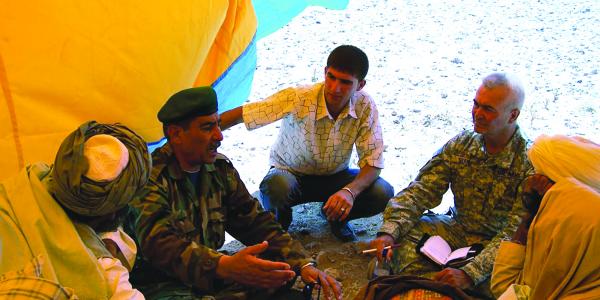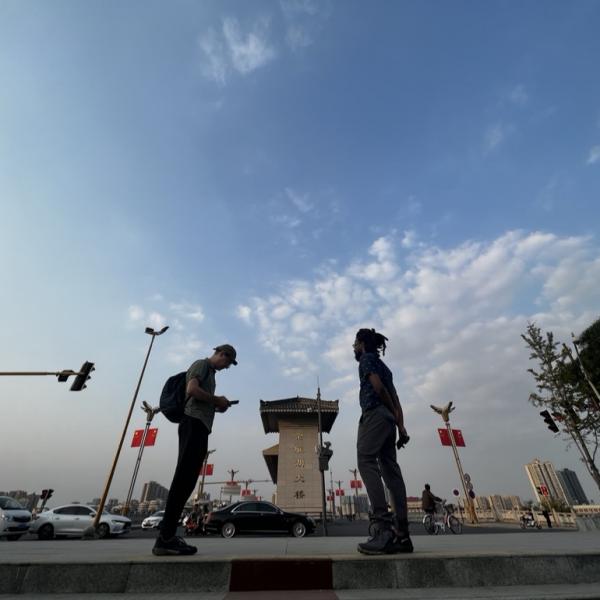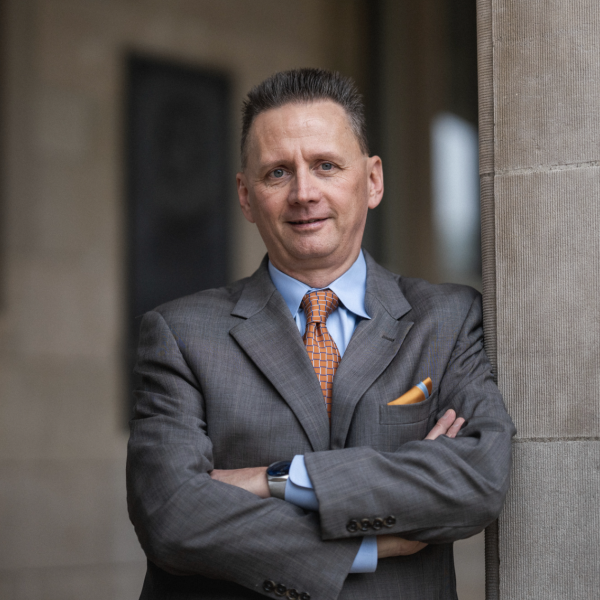Fahim Masoud, AB ’13, who served as an interpreter for the U.S. Army in Afghanistan, reflects on how WashU helped shape his identity.
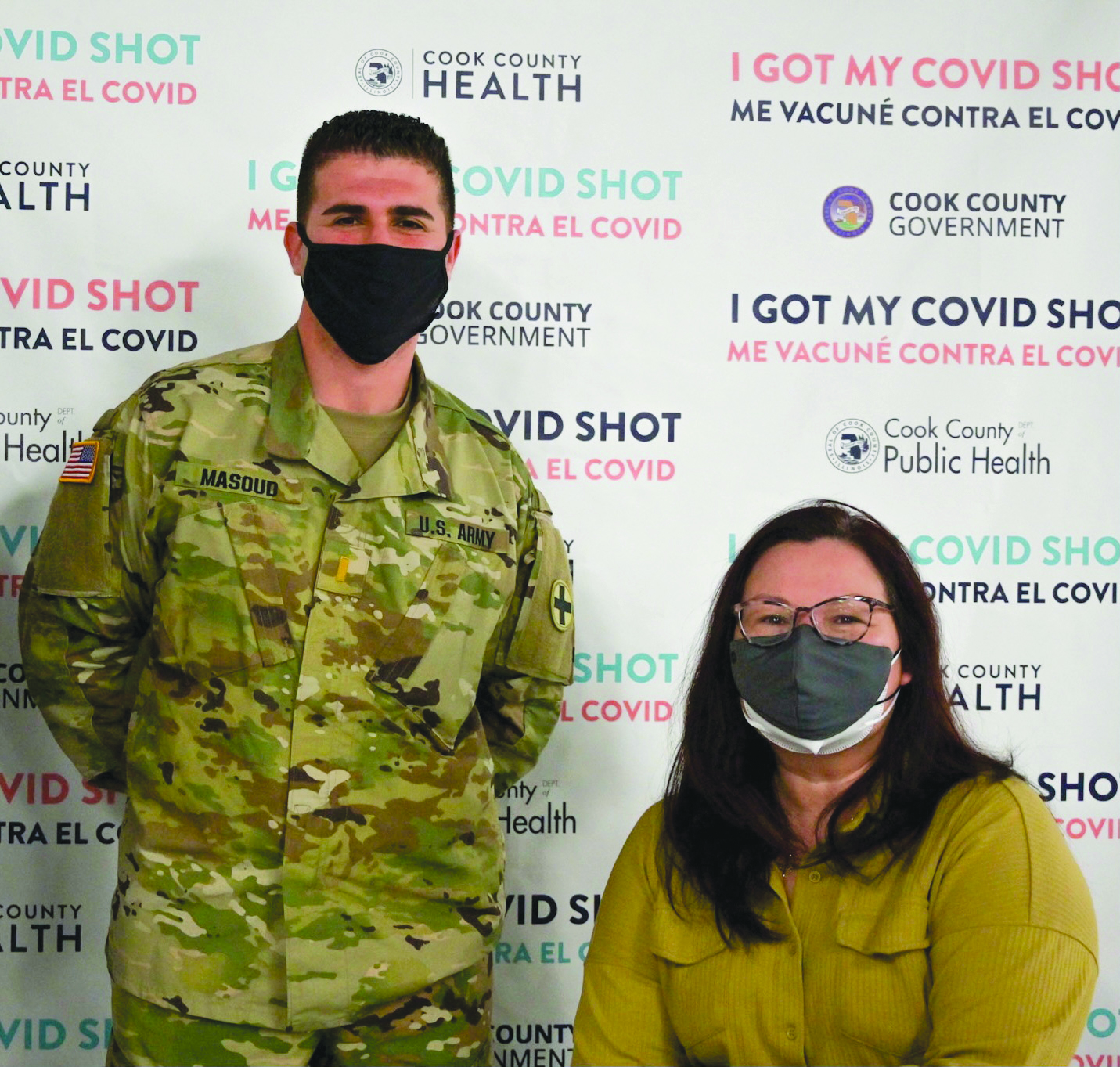
Fahim Masoud, AB ’13, is one of nine children. His family was considered part of the elite in Kabul, Afghanistan, in the early 1990s. But when the Taliban came to power in 1996, everything changed.
“Once they took over Kabul, my family lost everything,” Masoud said.
His father was an officer in the Afghan army that had been trained and funded by the Soviet Union. But when the Soviet Union collapsed and the Taliban took over, his family moved to Herat, on the other side of the country.
He says everyone was afraid of the Taliban, and it was hard to know whom to trust as neighbors were so willing to tell on each other – even for the most innocent activities.
“Every time we found a movie, we would put blankets on windows, the doors would be shut, and somebody would be on watch to make sure that nobody was walking around – just to watch an Indian or American movie.”
When the U.S. Army arrived in Masoud’s region, he had just finished high school and heard about the opportunity to work as an interpreter. Although it was a risky job, he applied.
"When you grow up in a society like Afghanistan, you are hungry for why there is so much messiness, why there is so much badness. You are trying to do everything you can to find a cure, and I think history has a lot to offer."
Interpreters played a key role in U.S. military operations in Afghanistan, providing additional muscle and cultural insights that could save a soldier’s life. And Masoud excelled in the role.
He often worked for Chief Warrant Officer James Ditter, and the two would sometimes discuss educational opportunities in the United States. After getting to know each other, Ditter, who was from St. Peters, Missouri, sponsored a student visa for Masoud to attend college in the U.S.
“People told me, ‘Look, if you really want to become educated and prosper you’ve got to go to WashU,’” Masoud said.
And he did thrive at WashU. He was offered a full scholarship and became a Merle Kling Undergraduate Honors Fellow. He soon connected with Professor Robert Canfield, an anthropologist who spent much of his career studying Afghanistan, and the two remain close friends today.
“He’s a brilliant guy, but he also conducted himself in a very mature way from very early on,” Canfield said. “Fahim is a unique guy with certainly a wonderful brain, but far more than a wonderful brain, he’s a great personality.”
Masoud was the first Afghanistan-born student to attend WashU and the first person in his family to move to the United States. He had to navigate several new experiences without his family to rely on for support.
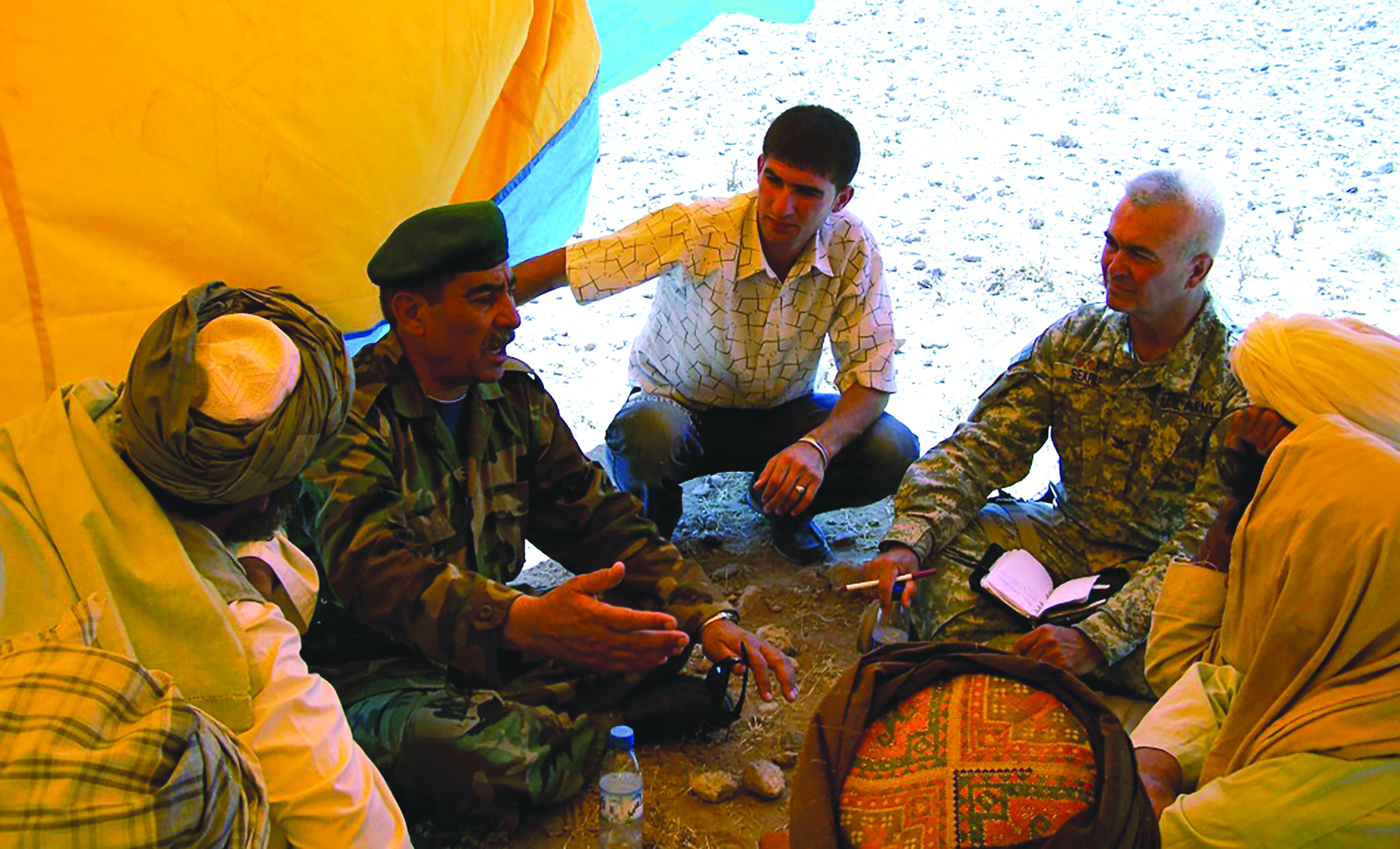
“A lot of people were really nice, really helpful, and really focused on making change in society. And that’s such an attractive, appealing thing for me,” Masoud said. “In a lot of ways, I feel like my identity as a person was forged at WashU. That’s because of not only the student body but also the faculty and the administrators that were really great.”
Masoud chose to study history as an undergraduate. “I think, when you grow up in a society like Afghanistan, you are hungry for why there is so much messiness, why there is so much badness, and you are trying to do everything you can to find a cure, and I think history has a lot to offer.”
He now works as a global intelligence manager at one of the largest private intelligence companies in the world and is an HHC executive officer in the Maryland Army National Guard. “I feel like a degree in history equipped me with all the right skills that I need to thrive and do well.”
Masoud says his education at WashU strengthened his ability to deal with a variety of personalities because open discussion and civil disagreement were encouraged.
Canfield emphasized this aspect of his character as well. “A lot of people get a little defensive when getting criticized. But if Fahim knew he was weak in some way, he would seek out people to ask for their help. This is a guy who’s not just smart and savvy but also a guy who listens to advice and does his best to follow the advice.”
Last summer, Masoud’s communication skills were vital in his efforts to get his family out of Afghanistan when the U.S. moved out and the Taliban moved in.

At the time, his family had no plan to leave Afghanistan. His mom had just bought beautiful new rugs for their home. But when the Taliban took over their city faster than anyone expected, they knew they needed to get out quickly. Masoud’s work with the U.S. Army as an interpreter put a target on their backs. Staying was just too dangerous.
Masoud initially tried official government channels to get his family out, putting together a packet for what is known as a P-2 visa. But in late August, he got desperate and started cold-calling senior U.S. military officials to ask for help – a bold move for such a junior officer.
Masoud spent a harrowing few days finding a hideout for his family in Kabul, staying up through the night, sending messages, coordinating travel, and calling anyone he thought might be able to help.
Some of those senior officials, who knew of Masoud’s work, ended up writing letters on his behalf. And when his parents and siblings were finally on a plane out of the country, Masoud could breathe again.
“He was willing to risk a lot. He was desperate to get help for his family,” said Canfield. “And the thing is: He pulled it off! Because he so easily fits in and engages so appropriately that people accept what he’s trying to accomplish.”
Masoud’s parents and younger brother are now living with him along with his wife and two young kids in their home in Virginia. While he knows it will be an adjustment, especially for his parents, he is hopeful for a bright future for his younger siblings. Masoud said his little sister, who was in medical school in Afghanistan, might even apply to attend WashU.

